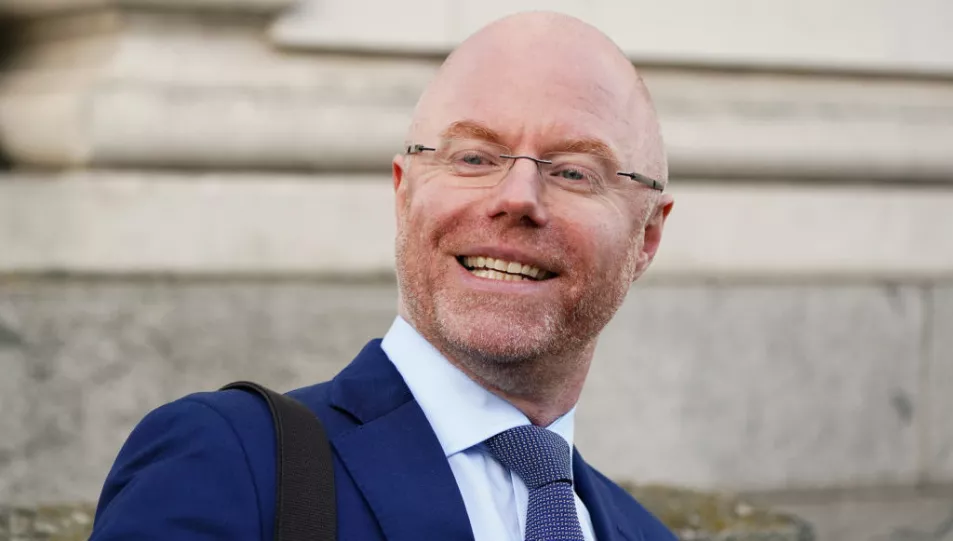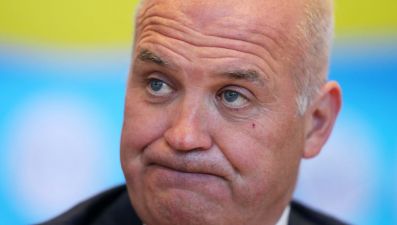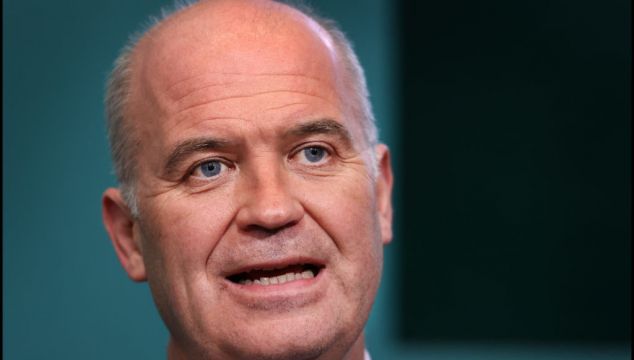Dr Tony Holohan has said it is not his intention to return to the role of chief medical officer at any time in the future as he prepares to take up a secondment to Trinity College Dublin.
Dr Holohan was announced as the professor of public health strategy and leadership at Trinity on March 25th.
However, it has since emerged that the role is an “open-ended secondment” to Trinity from the Department of Health, meaning Dr Holohan's €187,000 annual salary will be paid by the department and he will keep the same terms and conditions.
Questions have been asked this week about why the department will continue to pay his salary and whether Dr Holohan could return to the role in future.
Speaking to the Oireachtas health committee on Thursday, Dr Holohan said his time as chief medical officer was over and it was important his successor felt “fully empowered”.
“My secondment to Trinity College Dublin means I have agreed to relinquish my role as chief medical officer; it is not my intention to return to this role at any point in the future,” he said. “It is important that my successor feels fully empowered and enabled to undertake the role as they see fit.”
Dr Holohan said the department saw the role as being key to expanding the breadth of public health knowledge in the country.
His comments come after it emerged that Minister for Health Stephen Donnelly was only made aware on Tuesday that Dr Holohan’s new position was a secondment.

Mr Donnelly was quoted in a press release wishing the chief medical officer “all the best in this new and exciting chapter in his career”. However, he was not aware then that Dr Holohan would remain an employee of the department.
A spokesman for the Minister confirmed to The Irish Times he was only made aware of the secondment almost two weeks after the announcement was made.
“The Minister was made aware that this was a secondment [on Tuesday]. Mr Donnelly was advised of Dr Holohan’s departure some weeks ago, but not the finer HR details,” he said.
The disclosure raises further questions about who authorised the secondment, and the decision to keep paying Dr Holohan’s salary, and why neither the Minister nor Taoiseach Micheál Martin was informed about the arrangement until the matter was on the verge of becoming public this week.
Dr Holohan’s move has been described by Trinity as an “open-ended secondment”. The university said the post was “created with Dr Holohan in mind” but neither it nor the department has confirmed where the idea first originated.
At a meeting of the Oireachtas health committee on Wednesday, the department’s secretary general Robert Watt confirmed the permanent post of chief medical officer would be advertised with Dr Holohan taking up his new role in July. The committee heard that Dr Holohan would have a “contract of indefinite duration” at Trinity but was given no further detail of what that meant.
Mr Donnelly argued yesterday that secondment in the public service was commonplace and that Dr Holohan’s case was no different. However, several sources told The Irish Times that it is highly unusual for the organisation to which the person is seconded not to pay their salary, or a portion of it.
‘All public money’
In an interview with RTÉ’s Morning Ireland on Wednesday, Mr Donnelly argued Dr Holohan was “not getting paid any more money” and that even if Trinity was to pay him, it was still “all public money”.

Mr Donnelly said he did not know if others were working in universities and having their salaries paid by the department, but that he supported Dr Holohan’s move which was “really positive”.
“Tony was looking for a new challenge,” he said. “We are very lucky to have him leading this research. It is what the Asian countries did after Sars. And from this we are going to be as prepared as possible for another pandemic.”
The Taoiseach also reiterated that he was “not familiar” with the arrangements around Dr Holohan’s move to Trinity.
“There are joint arrangements between universities and research bodies,” he said in the Dáil. “My understanding is that the Health Research Board is involved here but again I am not fully au fait with all of the details on it, but many of those are jointly funded.”







